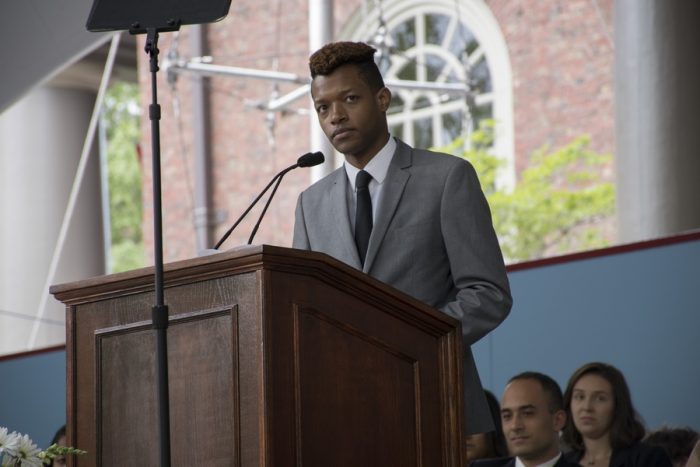
Page Description
Explore Jonathan Roberts’ inspiring journey at the Harvard Commencement
and discover how this humbling experience shaped his perspective and career.
The authenticity of others pain
- in economics we learned to quantify and dehumanize suffering,
- we learn that poverty, inequality, unemployment are unavoidable,
- that so long as we reach equilibrium people who live on pennies a day are somehow better off,
- in social studies and sociology we learn to treat others suffering as an academic exercise
to ponder their pain from a distance, - we critique structural inequality and oppression.
Excerpt from A beautiful speech by Jonathan Roberts | Harvard Commencement 2017
De echtheid van andermans pijn
- In de economie leerden we lijden te kwantificeren en te ontmenselijken,
- We leren dat armoede, ongelijkheid en werkloosheid onvermijdelijk zijn,
- dat zolang we een evenwicht bereiken,
mensen die leven van weinig geld op de een of andere manier beter af zijn, - in sociale studies en sociologie leren we het lijden van anderen te behandelen
als een academische oefening om op afstand over hun pijn na te denken, - bekritiseren we structurele ongelijkheid en onderdrukking.
1 Jonathan Roberts’ Humbling Experience at Harvard Commencement
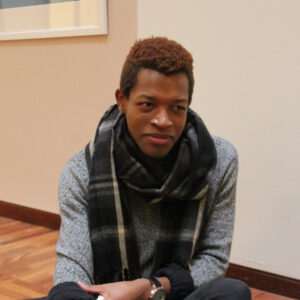
Humbling: causing someone to understand that they are not as important or special as they thought:
It’s a humbling experience to see people being so positive about life when they have so little.
I find his heroism humbling.
It is quite humbling for me to have the chance to work with such incredible people.
Losing is a humbling experience.
Having a second child can be humbling.
Cambridge Dictionary
1 Harvard Male Orator Jonathan Roberts | Harvard Commencement 2017
the land of the Wampanoag nation
Please enjoy the awesome lecture of Harvard orator Jonathan Samuel Roberts
Jonathan Roberts is a recent graduate of Harvard University with a strong background in both public speaking and service-based activism.
He focuses on labor and housing justice.
The Wampanoag Indians lived in what is now known as Massachusetts and Rhode Island in the early part of the 17th century. The name means “easterners” and at one point, their population was 12,000. … Right before the Pilgrams landed in 1620, the Wampanoag Indians saw their population greatly reduced due to disease.
The Harvard University – Boston – is situated in the region.
2 Transcript
Also quick shout-out to my grandmother who is here with us, she is 93 years old, she is still moving and grooving, oh my goodness, I hope I get those genes.
Now before I begin I would like to recognize that we are on the land of the Wampanoag nation, that it is sacred earth and that we have a responsibility to care for it and to treat it as such.
Much to my annoyance growing up, the phrase back in my day was used by my parents, is often as infamous staples such as: because I told you so and I’ll give you something to cry about, but as I stand on this stage, childish irritation is replaced by immeasurable gratitude.
1’30”: You see, back in my father’s day, students who look like him, like me, were pushed out of schools like this. Before my mother even turned 16, white families around this country rioted against integration. So these years at Harvard has been a vindication of their struggle and sacrifice, but I have to say this place has a peculiar way of shifting that familial perspective. Now like many of us I came here wanting to meet my parents expectations and become successful so I internalize what has become a familiar routine, I stressed over problem sets, I worried about internships and jobs, I shook hands, I pass resumes and soon personal failures became unbearable, soon when I would get rejections from student organizations I would feel worthless next to my friends, would I get a bad grade on a test, I would worry about my future when I would be rejected from jobs and internships, I bemoaned how unfair this world was, I forgot the lessons my parents had spent so many years trying to teach me, so when I was at my lowest and called out to my dad for help and guidance and he started to call off by saying back in my day, I hung up.
3’15”:
We really do live in an unfair world,
of all the people who could have come here we were the select few who were chosen.
3’40”: But as we worry here about our personal failures here we will earn and achieve more than families whose only failure was living in a broken unequal system and we have been so conditioned by privilege and circumstance that exclusivity is only a crime when we don’t receive, its spoils.
3’55”: Our education here has not prepared us to understand our advantage position in the world or the authenticity of others pain, in economics we learned to quantify and dehumanize suffering, we learn that poverty, inequality, unemployment are unavoidable, that so long as we reach equilibrium people who live on pennies a day are somehow better off, in social studies and sociology we learn to treat others suffering as an academic exercise to ponder their pain from a distance, we critique structural inequality and oppression.
4’45”: But how many of us every day for the past four years have walked past people in the square, experiencing homelessness and acted as though our theories and our conscience did not apply to them.
4’50”: Now I know we will be successful because we are ambitious and talented and personally driven and we will become leaders and innovators and founders of businesses and non-profits but that is exactly why the change this world so desperately needs will not come from us.
That in spite of our jargon our let’s grab a meals, our votes for Hillary, our votes for Jo, we will never sacrifice our position our place in the system. If we could give up this degree to prevent someone from experiencing homelessness or poverty or discrimination or violence we wouldn’t and I know this because after four years here I didn’t even consider it. But last semester dining hall workers gave us the education that we so desperately needed, for three weeks they went without pay, they were on picket lines, they marched, they shared their stories and experiences, they sacrificed everything for affordable health care and still we were sceptical and indifferent to their pain.
6’35”: One student went so far as to tell me that unfortunately in the market we live in, workers without college degrees simply could not be covered.
How quickly we have become the political leaders we claim to despise.
But dining hall workers remembered the lesson that my parents taught me, they remembered that our struggles are intimately connected.
They fought not only for affordable health care they fought for gender and racial equity, they fought for undocumented workers, they fought for their children, for workers in other universities, for workers around the world and they won… This is where you clap. Now as inspired as I am by that, show of conviction, I recognize that, as we are now not yet ready to inherit this world.
7’45: It’s a hard thing to say and it is a hard thing to hear and I am sure it would be easy to leave here feeling guilty.
8’: But without any lasting commitment,
I’m sure it would be easy to convince ourselves that this is just the way the world works.
I am sure as my parents know all too well, it would be easy for us to justify our privileges and unequal advantages by saying that it is better to take care for our own, than to empower individuals who society has disowned
but we have stepped on the blood and bones of people for far too long to forgive ourselves for doing what is easy.
Now we need to act beyond ourselves and think what is possible for others.
8’50”: And I know if I do that, in the future when I hear my children complaining about the inconveniences in their world, I will muster the strength to smile and I would know they are living in a world that is one, I could only dream of, because back in my day.
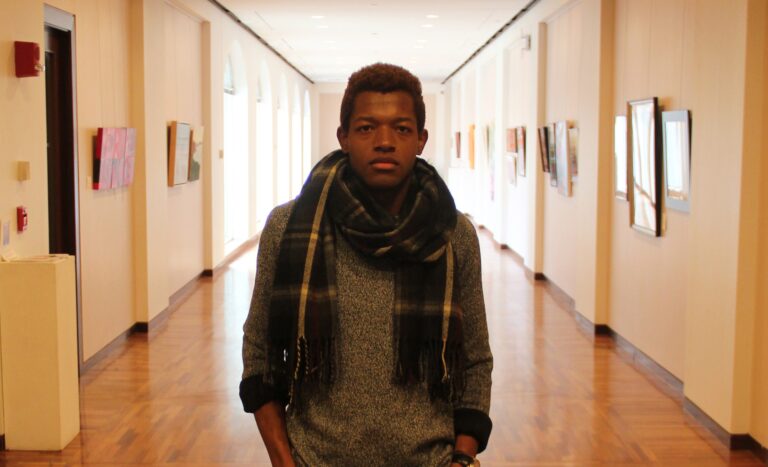
3 Transcript in Dutch translation
Ook een snelle shout-out naar mijn grootmoeder die hier bij ons is, ze is 93 jaar oud, ze beweegt en danst nog steeds, oh mijn goedheid, ik hoop dat ik die genen heb.
Voordat ik begin wil ik erkennen dat we ons bevinden op het land van de Wampanoag natie, dat het heilige grond is en dat we de verantwoordelijkheid hebben om ervoor te zorgen en het als zodanig te behandelen.
Tot mijn ergernis werd de uitdrukking ‘in mijn tijd’ vaak door mijn ouders gebruikt, net zo berucht als uitdrukkingen zoals: omdat ik het je gezegd heb en ik zal je een reden geven om te huilen, maar terwijl ik op dit podium sta, wordt kinderlijke irritatie vervangen door onmetelijke dankbaarheid.
1’30”: Zie je, in de tijd van mijn vader werden studenten die op hem lijken, zoals ik, uit scholen zoals deze geduwd. Voordat mijn moeder zelfs maar 16 werd, kwamen witte families in dit land in opstand tegen integratie. Dus deze jaren aan Harvard zijn een rechtvaardiging van hun strijd en opoffering geweest, maar ik moet zeggen dat deze plek een eigenaardige manier heeft om dat familiale perspectief te veranderen. Zoals velen van ons kwam ik hier met de wens om aan de verwachtingen van mijn ouders te voldoen en succesvol te worden, dus internaliseerde ik wat een bekend ritueel is geworden: ik stresste over probleemsets, maakte me zorgen over stages en banen, schudde handen, gaf cv’s door en al snel werden persoonlijke mislukkingen ondraaglijk. Wanneer ik werd afgewezen door studentenorganisaties voelde ik me waardeloos naast mijn vrienden, wanneer ik een slecht cijfer haalde voor een toets, maakte ik me zorgen over mijn toekomst, wanneer ik werd afgewezen voor banen en stages, klaagde ik over hoe oneerlijk deze wereld was. Ik vergat de lessen die mijn ouders me zoveel jaren hadden geprobeerd te leren, dus toen ik op mijn dieptepunt was en mijn vader om hulp en begeleiding vroeg en hij begon met te zeggen ‘in mijn tijd’, hing ik op.
3’15”: We leven echt in een oneerlijke wereld,
van alle mensen die hier hadden kunnen zijn, waren wij de weinigen die werden gekozen.
3’40”: Maar terwijl we ons hier zorgen maken over onze persoonlijke mislukkingen, zullen we meer verdienen en bereiken dan families waarvan de enige mislukking was dat ze in een gebroken en ongelijk systeem leefden. We zijn zo geconditioneerd door privileges en omstandigheden dat exclusiviteit alleen een misdaad is wanneer we niet de vruchten ervan plukken.
3’55”: Onze opleiding hier heeft ons niet voorbereid om onze bevoorrechte positie in de wereld te begrijpen of de echtheid van andermans pijn te erkennen. In economie leerden we om lijden te kwantificeren en te ontmenselijken, we leerden dat armoede, ongelijkheid, werkloosheid onvermijdelijk zijn, dat zolang we het evenwicht bereiken, mensen die van een paar centen per dag leven, op de een of andere manier beter af zijn. In sociale studies en sociologie leerden we het lijden van anderen te behandelen als een academische oefening om hun pijn van een afstand te beschouwen, we bekritiseren structurele ongelijkheid en onderdrukking.
4’45”: Maar hoeveel van ons zijn de afgelopen vier jaar elke dag langs mensen gelopen in het plein die dakloos zijn en deden alsof onze theorieën en ons geweten niet op hen van toepassing waren.
4’50”: Nu weet ik dat we succesvol zullen zijn omdat we ambitieus en getalenteerd zijn en persoonlijk gedreven, en we zullen leiders en vernieuwers en oprichters van bedrijven en non-profits worden, maar dat is precies waarom de verandering die deze wereld zo hard nodig heeft, niet van ons zal komen.
Ondanks ons jargon, onze ‘laten we een hapje eten’, onze stemmen voor Hillary, onze stemmen voor Joe, zullen we nooit onze positie, onze plaats in het systeem opofferen. Als we dit diploma zouden kunnen opgeven om iemand te behoeden voor dakloosheid of armoede of discriminatie of geweld, zouden we het niet doen en ik weet dit omdat ik er na vier jaar hier niet eens aan dacht. Maar afgelopen semester gaven de kantinewerkers ons de opleiding die we zo hard nodig hadden, drie weken gingen ze zonder loon, stonden ze aan de stakingslijnen, marcheerden ze, deelden ze hun verhalen en ervaringen, ze offerden alles op voor betaalbare gezondheidszorg en nog steeds waren we sceptisch en onverschillig voor hun pijn.
6’35”: Een student ging zelfs zo ver om mij te vertellen dat het helaas in de markt waarin we leven, onmogelijk is voor arbeiders zonder een universitair diploma om gedekt te zijn.
Hoe snel zijn we de politieke leiders geworden die we beweren te verafschuwen.
Maar de kantinewerkers herinnerden zich de les die mijn ouders mij leerden, ze herinnerden zich dat onze strijd nauw met elkaar verbonden is.
Ze vochten niet alleen voor betaalbare gezondheidszorg, ze vochten voor gender- en raciale gelijkheid, ze vochten voor ongedocumenteerde arbeiders, ze vochten voor hun kinderen, voor arbeiders in andere universiteiten, voor arbeiders over de hele wereld en ze wonnen… Dit is waar je moet klappen. Nu, zo geïnspireerd als ik ben door die overtuiging, erken ik dat we, zoals we nu zijn, nog niet klaar zijn om deze wereld te erven.
7’45”: Het is een harde waarheid om te zeggen en het is een harde waarheid om te horen en ik weet zeker dat het gemakkelijk zou zijn om hier weg te gaan met een schuldgevoel.
8′: Maar zonder blijvende toewijding,
ben ik er zeker van dat het gemakkelijk zou zijn om onszelf te overtuigen dat dit gewoon de manier is waarop de wereld werkt.
Ik weet zeker dat, zoals mijn ouders maar al te goed weten, het gemakkelijk zou zijn voor ons om onze privileges en ongelijke voordelen te rechtvaardigen door te zeggen dat het beter is om voor onze eigen mensen te zorgen dan om individuen te versterken die door de samenleving zijn verstoten
MAAR WE HEBBEN TE LANG OP HET BLOED EN DE BOTTEN VAN MENSEN GESTAPT OM ONSZELF TE VERGEVEN DOOR TE DOEN WAT GEMAKKELIJK IS.
Nu moeten we handelen buiten onszelf en nadenken over wat mogelijk is voor anderen.
8’50”: En ik weet dat als ik dat doe, ik in de toekomst, wanneer ik mijn kinderen hoor klagen over de ongemakken in hun wereld, de kracht zal vinden om te glimlachen en zal weten dat ze leven in een wereld waar ik alleen van kon dromen, omdat ‘in mijn tijd’.
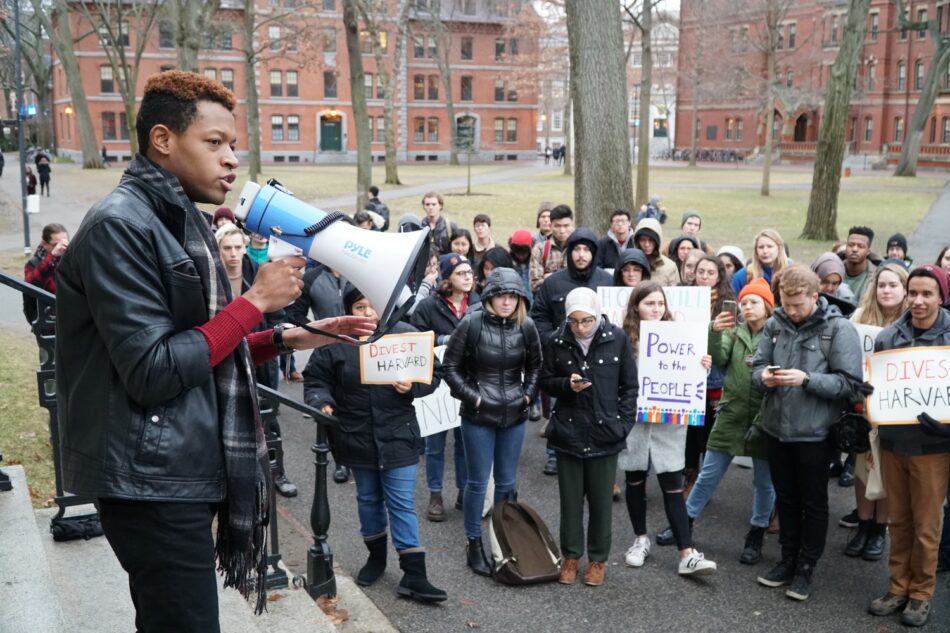
Summary
- As I stand on this stage, childish irritation is replaced by immeasurable gratitude.
- Back in my father’s day, students who look like him, like me, were pushed out of schools like this.
- I forgot the lessons my parents had spent so many years trying to teach me.
We really do live in an unfair world.
- But as we worry here about our personal failures, here we will earn and achieve more than families whose only failure was living in a broken unequal system.
- Our education here has not prepared us to understand our advantage position in the world or
the authenticity of others pain,
- in economics we learned to quantify and dehumanize suffering,
- we learn that poverty, inequality, unemployment are unavoidable,
- that so long as we reach equilibrium people who live on pennies a day are somehow better off,
- in social studies and sociology we learn to treat others suffering as an academic exercise to ponder their pain from a distance,
- we critique structural inequality and oppression.
- But how many of us every day for the past four years have walked past people in the square, experiencing homelessness and acted as though our theories and our conscience did not apply to them.
- They sacrificed everything for affordable health care and still we were sceptical and indifferent to their pain.
- One student went so far as to tell me that unfortunately in the market we live in, workers without college degrees simply could not be covered.
- How quickly we have become the political leaders we claim to despise.
- They remembered that our struggles are intimately connected.
- It’s a hard thing to say and it is a hard thing to hear and I am sure it would be easy to leave here feeling guilty.
- But without any lasting commitment,
- I’m sure it would be easy to convince ourselves that this is just the way the world works.
- BUT WE HAVE STEPPED ON THE BLOOD AND BONES OF PEOPLE FOR FAR TOO LONG TO FORGIVE OURSELVES FOR DOING WHAT IS EASY.
Now we need to act beyond ourselves and think what is possible for others.
- I know if I do that, in the future when I hear my children complaining about the inconveniences in their world, I will muster the strength to smile and I would know they are living in a world that is one, I could only dream of, because back in my day.
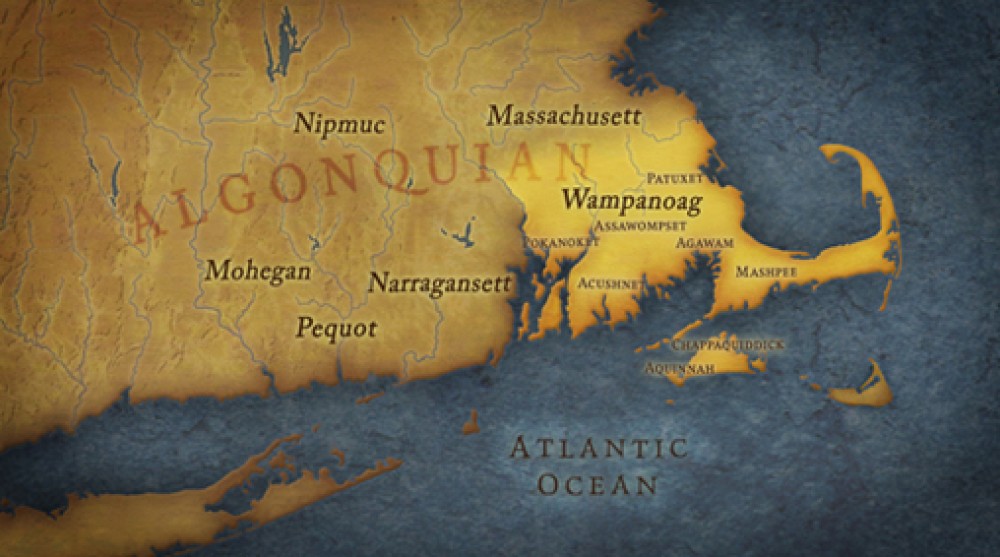
The land of the Wampanoag nation before the invasion
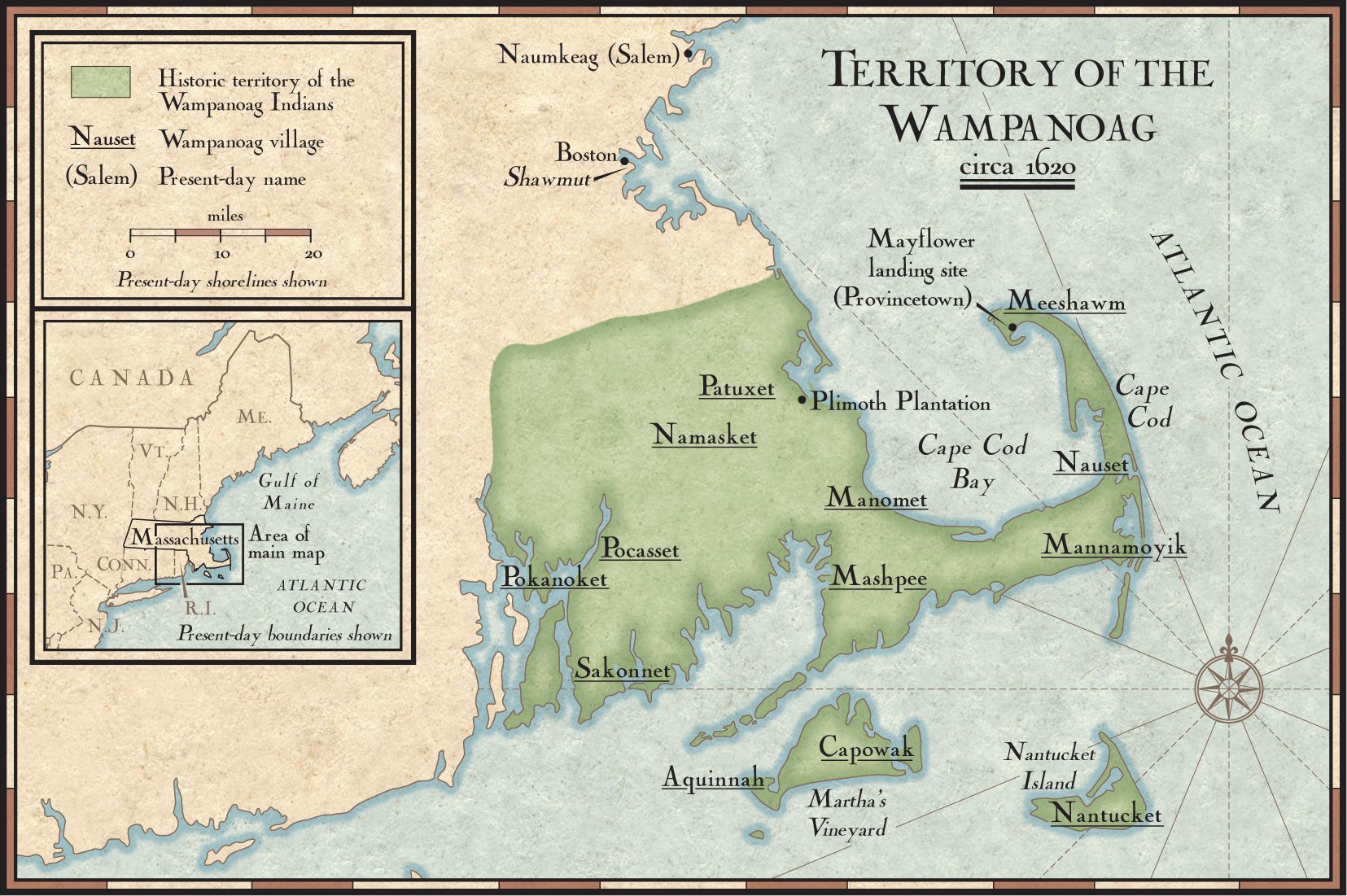
Please remember
- … but as I stand on this stage, childish irritation is replaced by immeasurable gratitude.
- You see, back in my father’s day, students who look like him, like me, were pushed out of schools like this.
- But as we worry here about our personal failures here we will earn and achieve more than families whose only failure was living in a broken unequal system and we have been so conditioned by privilege and circumstance that exclusivity is only a crime when we don’t receive, its spoils.
We really do live in an unfair world,
- of all the people who could have come here we were the select few who were chosen.
- How quickly we have become the political leaders we claim to despise.
- But dining hall workers remembered the lesson that my parents taught me, they remembered that our struggles are intimately connected.
- It’s a hard thing to say and it is a hard thing to hear and I am sure it would be easy to leave here feeling guilty.
- But without any lasting commitment,
I’m sure it would be easy to convince ourselves that this is just the way the world works.
- I am sure as my parents know all too well, it would be easy for us to justify our privileges and unequal advantages by saying that it is better to take care for our own, than to empower individuals who society has disowned
- BUT WE HAVE STEPPED ON THE BLOOD AND BONES OF PEOPLE FOR FAR TOO LONG TO FORGIVE OURSELVES FOR DOING WHAT IS EASY.
Now we need to act beyond ourselves and think what is possible for others.
- And I know if I do that, in the future when I hear my children complaining about the inconveniences in their world, I will muster the strength to smile and I would know they are living in a world that is one, I could only dream of, because back in my day.
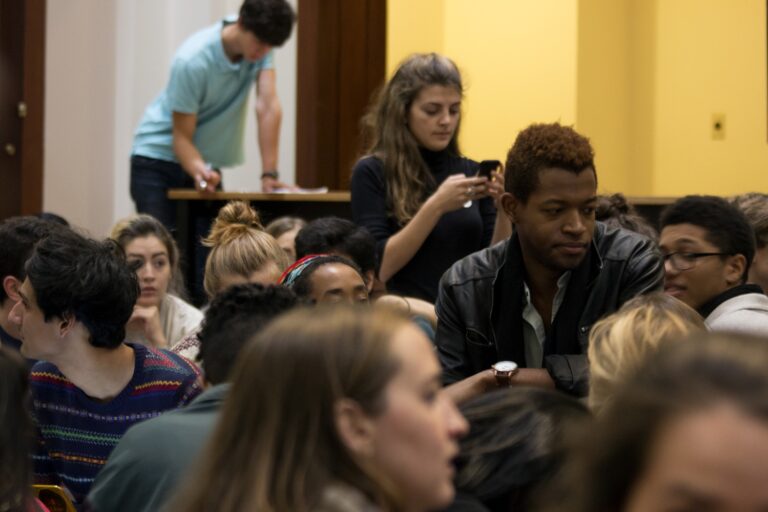
2 Blind man eating ice cream prank! Always Nevermind
5 mrt. 2021